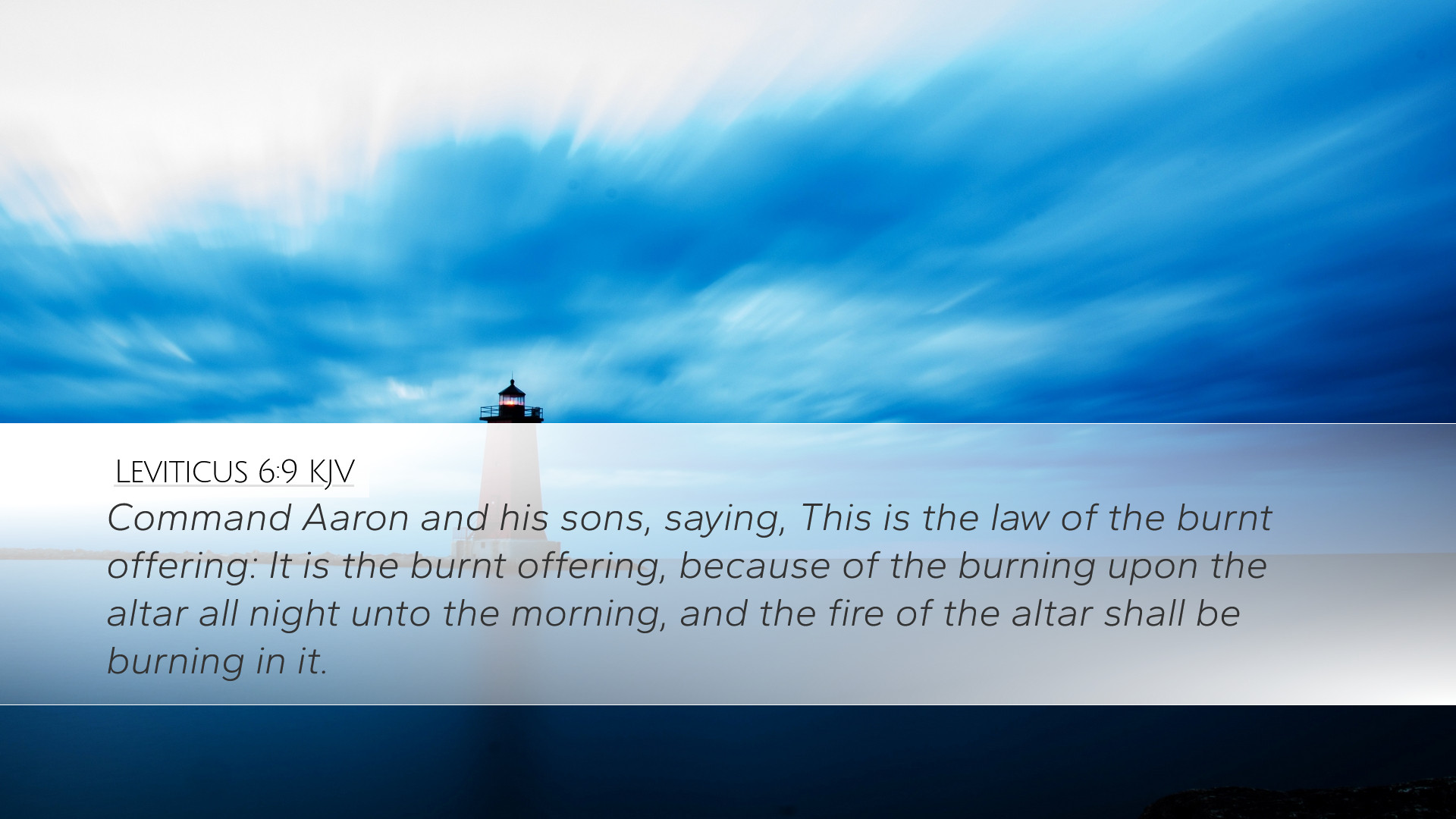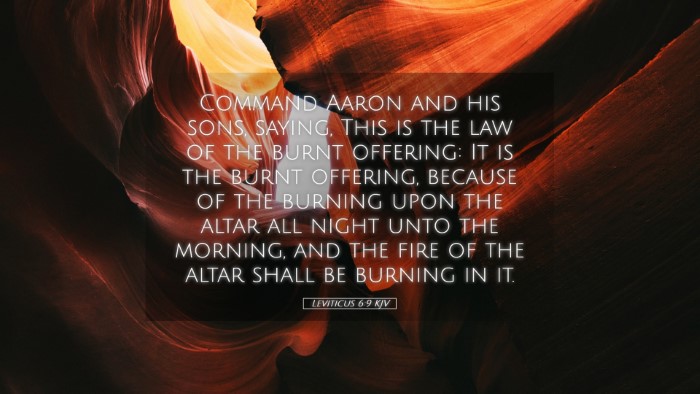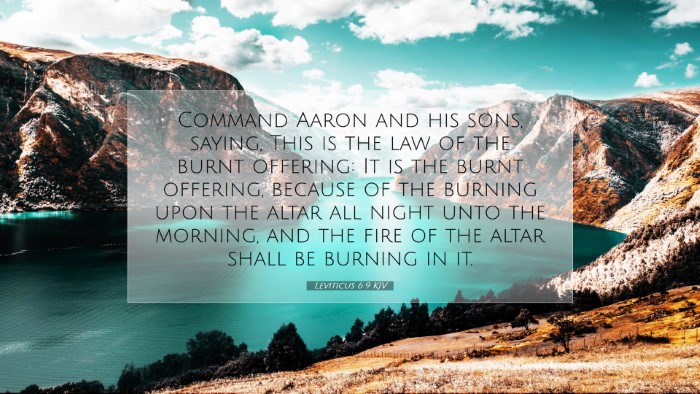Commentary on Leviticus 6:9
Bible Verse: Leviticus 6:9 - "Command Aaron and his sons, saying, 'This is the law of the burnt offering: It is the burnt offering because of the burning upon the altar all night until the morning; and the fire of the altar shall be kept burning on it.'
Introduction
The book of Leviticus serves as a crucial guide that outlines the laws and rituals governing the priests and the people of Israel. In this chapter, special attention is given to the role of fire in the burnt offerings, which is symbolic of several spiritual truths. This commentary seeks to draw from the insights of notable public domain scholars to unpack the depth of Leviticus 6:9.
Contextual Background
The context of Leviticus is vital for understanding the significance of the burnt offering. The entire chapter opens a window into the sacrificial system that was pivotal for the Israelites as they sought to establish their covenant relationship with God. The instructions given to Aaron and his sons regarding the burnt offering signify a structured approach to worship that involved specific roles, regulations, and reverence towards God.
Exegetical Insights
The command to "burn upon the altar all night" holds significant meaning. It points to the continual nature of worship that God desires from His people. The fire that is to be kept burning all night signifies the necessity of maintaining a relationship with God that is persistent and fervent.
Matthew Henry's Commentary
Henry emphasizes the perpetual fire that was to be maintained on the altar, noting its symbolism as a representation of God's unending presence. The fire on the altar being kept burning reflects the Israelites' ongoing relationship with God, implying that worship is not a one-time act but a continual expression of faith and devotion.
Albert Barnes' Analysis
Barnes elaborates on the significance of the burnt offering, describing it as a complete surrender to God. The ashes left behind, as well as the fire that consumes the offering, symbolize the totality of the atonement and the elimination of sin. He points out that the burnt offering was to be entirely consumed, indicating that nothing of it was to be kept back for any human usage, hence representing full commitment.
Adam Clarke's Interpretation
Clarke focuses on the aspect of obedience in the rituals prescribed. He comments on the importance of following God's commandments meticulously as grounds for seeing God's favor. The fire that is kept burning serves not only as a sign of holiness but also as a representation of God's acceptance of the offerings provided by His people.
Theological Implications
The theological implications of this verse stretch into New Testament teachings where the concept of sacrifice is fulfilled in Christ. Just as the fire was to be eternal in the Old Covenant, the consuming love of Christ serves as the perpetual sacrifice for believers, guiding their worship and devotion towards God.
Practical Applications
-
Perseverance in Worship: Just as the fire needed to be kept burning, Christians are called to maintain a persistent fire of devotion in their hearts, engaging in prayer and worship regularly to foster intimacy with God.
-
Complete Surrender: The burnt offering teaches the importance of total surrender and commitment to God. Today, believers are encouraged to offer their lives as living sacrifices, holy and pleasing to God (Romans 12:1).
-
Community and Accountability: The directive was given to Aaron and his sons, highlighting the role of communal worship and accountability among believers. Churches today should foster environments that encourage mutual support in spiritual growth.
Conclusion
Leviticus 6:9 serves as a rich source of theological and practical insight, revealing the heart of God's desire for worship that is continual, complete, and communal. Scholars like Matthew Henry, Albert Barnes, and Adam Clarke provide valuable interpretations that deepen our understanding of God’s instructions to His people. In studying such verses, pastors, students, and theologians are reminded of the enduring principles of worship and sacrifice as foundational aspects of their faith journey.


